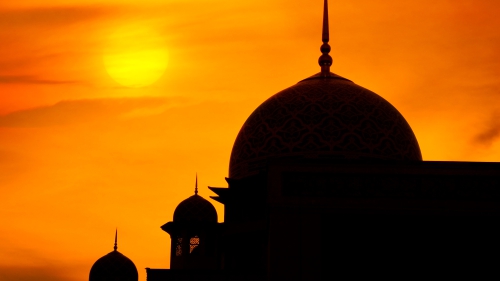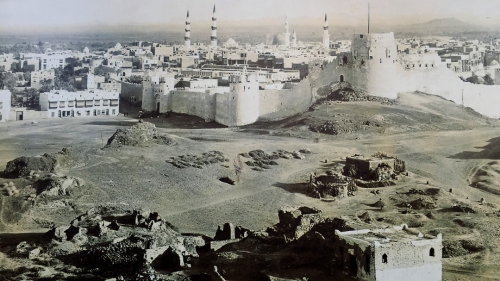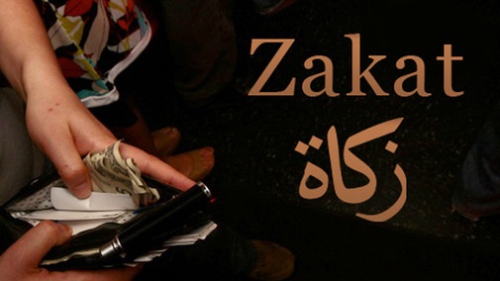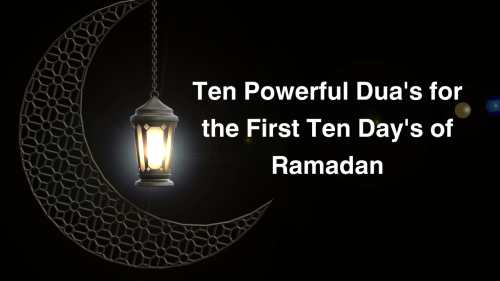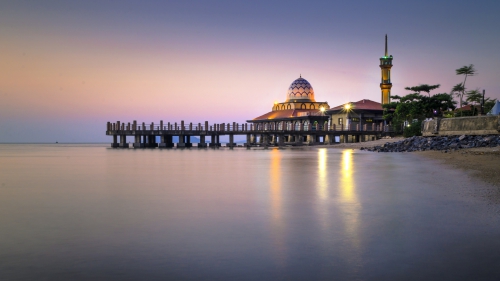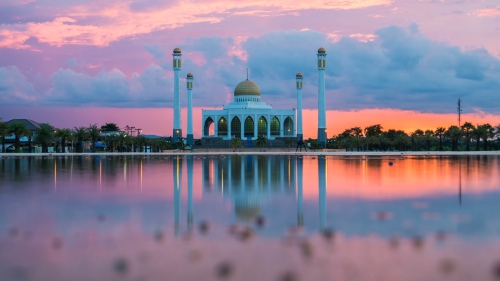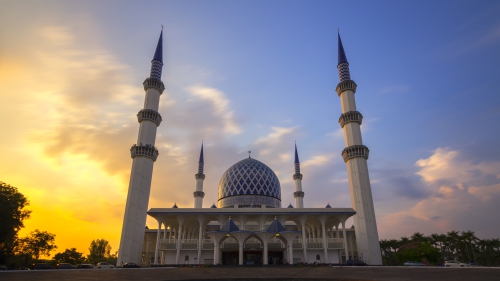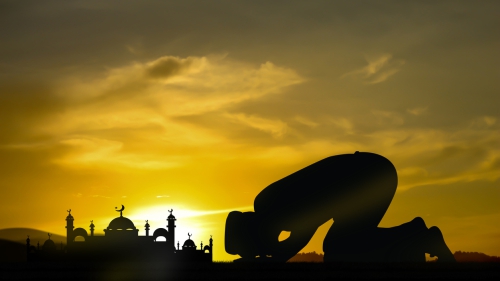Islam - A Religion of Mercy
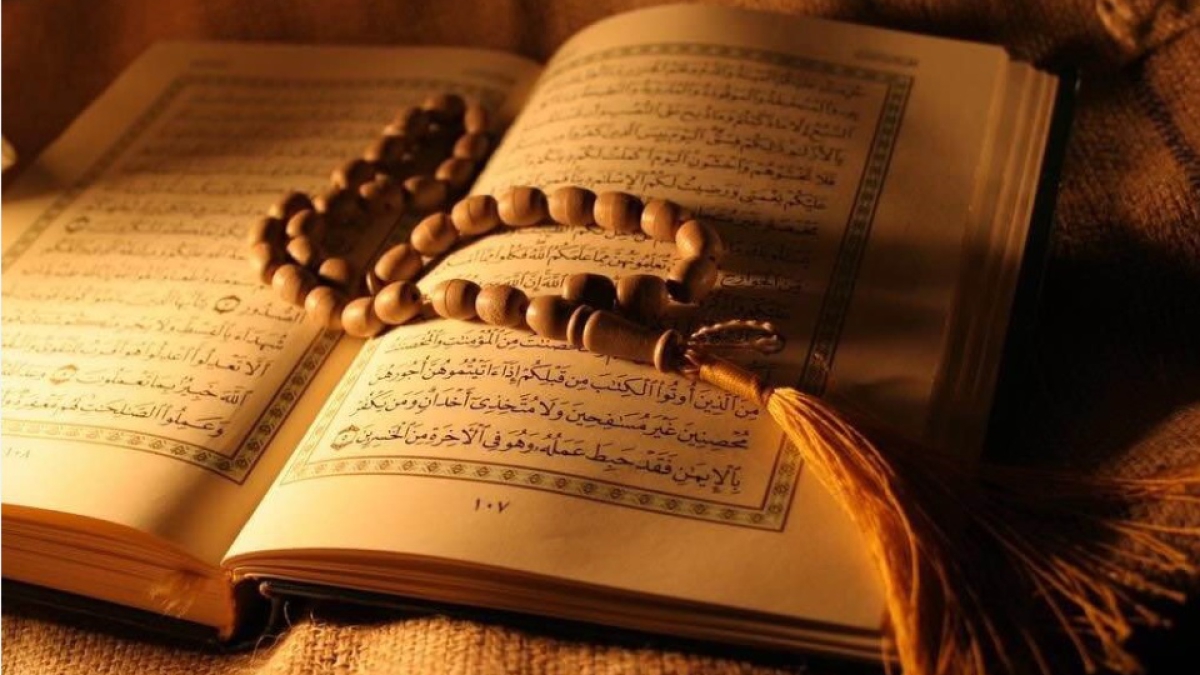
The wonderful religion of Islam is based almost exclusively on two primary sources. Firstly, the most awe-inspiring and motivational figure of our beloved Prophet Muhammad (peace be upon him) and secondly the astonishingly eloquent and the glorious Quran. Together, these two sources provide copious guidance, wisdom and powerful means of development as well as the perfection of human life. In fact it may be asserted that for a Muslim, the complete blueprint to lead an unblemished and faultless life in this world and thus attain the highest status in the Akhira (the hereafter) is contained within these two sources.
The Quran is described as containing advice and guidance on every single subject that affects human life as well as being a complete remedial cure for all the diseases of the heart and limitless source of mercy for all mankind. The Prophet Muhammad (peace be upon him) similarly is described as Burhan – the clear evidence, mercy for mankind and a paragon of perfection, possessing every moral attribute humanly possible or imaginable. It is therefore not surprising that when his favourite wife and the most beloved person in his life Aisha (May Allah be pleased with her) was asked to describe the character of our beloved messenger, she simply said, “His character was the Quran” – i.e. he was the Quran walking, the Quran talking, the Quran living.
Here I want to explore a little as to how the Messenger (peace be upon him) is praised by Allah and the highest esteem in which our Lord holds our beloved Prophet (peace be upon him). The following verses show how much God loves, cares for and cherishes His creation:
“God has done a favour on the believers by sending a Prophet from amongst themselves, who recites His verses, purifies them and teaches them the book and wisdom” (Ale Imran: 164).
“There has come to you a Prophet from amongst yourselves, your sufferings grieve him, ever anxious about your welfare and for the believers he is most kind and most merciful” (At-Touba: 128). Abdullah Yusuf Ali comments on this verse saying “the tender heart of the Teacher is grieved that any among his flock should rush headlong to ruin. He watches ardently over them and whenever any of them show signs of faith, his kindness and mercy surround him and rejoice over him”.
“And we have not sent you, [O Muhammad] except as a mercy for the entire humanity” (Al Anbiya: 107).
God has blessed the Prophet (peace be upon him) with many excellent qualities; undoubtedly those qualities portray the perfection of his character, the flawlessness of his disposition and the excellence of his personality as well as the high esteem in which our Maker holds him. These verses of the Quran eloquently sing his praises. On the one hand they reveal the grandeur, the splendour and the majesty of the Prophet whilst on the other hand they show the generosity of Allah. So much so that one is compelled to exclaim, as Jami said:
Oh most beautiful, Oh leader of mankind
To praise you as you deserve is just not possible
After the almighty God you are the most noble
That is the story in short
A Punjabi poet Pir Mehr Ali Shah expressed very aptly this human inability to comprehend fully the magnificence of the Prophet (peace be upon him) when he wrote:
“Glory is to God how beautiful, how wonderful and how perfect you are, where is Mehr Ali? And where is your praise? On what have these irreverent eyes befallen?”
However this verse “We only sent you as a mercy for the entire humanity” is comprehensive and precisely summarises all these qualities. It is a mirror, which reflects the wonders of the beloved Prophet (peace be upon him) in its full glory. To paraphrase it, the verse says: “O beloved! The glorious book, the perfect religion, the noble character, powerful arguments, clear signs and wonderful miracles that we have blessed you with – the purpose of all this is that you can be the mercy for all: those who follow you and those who are strangers”.
The word Rahma means having pity, compassion and being kind. The pity and compassion leads to empathy, which in turn motivates one to be kind. The Prophet (peace be upon him) shows empathy – “your suffering grieve him” – and then he is kind, compassionate and merciful.
Those contemporaries who had the enviable fortune to follow “the mercy for all” were completely and almost effortlessly transformed by the excellent role model they saw before them. Ironically, before the advent of Islam, these very people were amongst the most ignorant, the most callous, the most boorish and the most brutal group of people that ever existed, taking their ignorance and brutality from the pre-Islamic Jahillayah era and the customs, which were rooted for centuries in total darkness. However, the epitome of perfection that the Prophet’s (peace be upon him) life was turned all the darkness into the dazzling beacons of light because in the space of a few short years, the Arabs became the most civilised, the most cultured and the most enlightened of all the people. An ardent fervour for spirituality, religiosity, reform and conquest swept across the whole of the Arabian peninsula, all by the inspiration and the living example of one extraordinary figure (peace be upon him).
The lives of the Arabs were totally revolutionised by following the example of one solitary man with a magnetic personality and extraordinarily charismatic presence. The testimony to this irrefutable truth is born not just by enthusiastic and devout Muslims, which would be expected anyway, but even by fair minded non-Muslims such as the renowned historian Michael H. Hart who in his book ‘The 100: A Ranking of the Most Influential Persons in History’ puts our wonderful Prophet (peace be upon him) at the top of the list, even ahead of Jesus Christ who comes at number three, just behind Isaac Newton. Michael Hart justifies his choice as thus, “my choice of Muhammad to lead the list of the world’s most influential persons may surprise some readers and may be questioned by others, but he was the only man in history who was supremely successful on both the religious and secular levels…Muhammad founded and promulgated one of the world’s great religions and today, thirteen centuries after his death, his influence is still powerful and pervasive… Muhammad was responsible for both the theology of Islam and its main ethical and moral principles. In addition, he played the key role in proselytising the new faith, and in establishing the religious practices of Islam. It is this unparalleled combination of secular and religious influence which I feel entitles Muhammad to be considered the most influential single figure in human history.”
This is such a powerful accolade indeed and it is all the more impressive because its espouser is NOT an ardent, dedicated, conventional Muslim!
For a relentlessly beleaguered and besieged Muslim these days, it is so gratifying to discover that even non-Muslim historians cannot find a parallel for our astonishing Prophet (peace be upon him) and the way he single-handily and almost overnight revolutionised and transformed an entire race. The teachings of our great Prophet (peace be upon him) changed the course of human history, so much so that dictatorships was challenged, a direct door to Allah for every person was opened thus eliminating the need for priesthood as a means of mediation, one of the fundamental tenets (some may even say scourges) of Christianity.
Discriminations of all kinds were questioned, challenged, fought, defeated and eradicated by the advent of this great religion. Much greater freedom and choice as well as many more rights were granted to women than had hitherto been thought conceivable. Entrenched racial prejudices entwined with various ancient tribal practices and customs were purged away from the ugly face of a primitive, savage, barbaric and backward social order, a social order which thought it perfectly legitimate and acceptable to bury totally innocent and blameless human beings alive just because they were perceived to be of the wrong gender! To deracinate such primordial and yet widely established behaviour patterns was not an easy feat and under normal circumstances, would have required eon years to make an iota of difference.
We only have to look at the world around us to see how ineffectual and inadequate we ourselves feel when we see the harrowing plight of our Palestinian brethrens or the relentless denigrating of our own religion. Our beloved Prophet (peace be upon him) had much much more to contend with in terms of things that were in desperate need of a change in the world and society around him. He did not have things like the mass media, Internet bloggs, 24-hour news, propaganda press, monetary resources, social media or any of the modern means of affecting a change at his disposal. Yet he was able to bring about and astonishing transformation in how people thought, behaved, lived, worshipped, interacted with others and much more beside all by his profound preaching and incredible persona, a persona which above all else was imbued with compassion and a great sense of justice and fairness.
When the Muslims were ruthlessly being persecuted in Makkah for the unpardonable crime of embracing Islam, with their livelihoods threatened and their lives under perpetual siege, they came to the Prophet (peace be upon him) and asked him (peace be upon him) to curse the Makkans who were perpetrating this oppression and persecution against the new Muslims, since his curses were rightly believed to have the supernatural powers of harming the cursed ones. However, the beloved Prophet (peace be upon him), upon hearing this plea, refused to indulge in this pernicious but nonetheless justifiable vendetta against his erstwhile brethrens and just said in a compassionate, clement voice said, “I have been sent as a Mercy not a punishment, be patient”. It was this compassion, this clemency and this mercy that enabled Islam to spread like a wildfire throughout the globe within an astoundingly short space of a mere few years!
Allama Aloosi gives spiritual interpretation of the verse, “He is a mercy for all in the sense that everything derives Divine grace through him, he is the conduct, the channel”. That’s why the Prophet’s (peace be upon him) light was created before the creation of anything else. There is a Hadith, which says, “O Jabir! God created your Prophet’s light first” and in another Hadith it is narrated that the holy Prophet (peace be upon him) stated that, “Allah is the giver and I am the distributor”.
One of the best Muslim poets and philosopher Mohammed Iqbal expresses very movingly and very eloquently this unique and incomparable status of our beloved Prophet (peace be upon him) in one of his famous poems as follows:
He is the wisest of all, the final Prophet, and the master of all
Who gave the dust the brilliance of Mount Sinai
From the vantage point of passion and love
He is the first and the last; the Quran, the criterion, Yaseen and Taha
In conclusion I would like to state that “Mercy for Mankind” represents the love of God for all people alike, deserving and undeserving, the righteous and the wicked, the pious and the sinful, the moral and the depraved, the saintly and the dissolute. Many Muslims claim that they are the chosen people in the sense that they are in a privileged position of being the special recipients of God’s mercy, as having the best and the last prophet as their saviour, as having a perfect religion for a living template. That being the case, aren’t there any extra responsibilities appendaged to those corresponding special privileges? If we delude ourselves into thinking that we are God’s favourite, should not we feel an extra sense of responsibility towards the betterment of the world we live in as God’s “chosen” vicegerents on earth? As such, should not we then shoulder a large chunk of the blame for the awful mess that the world is currently in, especially the religious mess which is largely due to our own mind-numbing stupidity and our appalling inability to settle our petty internal feuds?
We are always full of inane claptrap about the Ummah being one body and blow a lot of hot air about the crucial importance of unity in Islam and yet we demonstrate our defunct religiosity and our spiritual bankruptcy incessantly when we see time and time again that no two scholars agree on the same Islamic ruling. The beautiful and the perfect religion of Islam has become a tragic byword for everything that is ludicrous, nonsensical and comical, not to mention barbaric and intolerant. This is all because of the way in which we, its “special recipients”, portray and depict it for the entire world to see.
God will only favour us as ‘His chosen people’ if and only if we abide by His religious tenets wholeheartedly, properly and completely. The blessings that the Almighty will then shower on us will be limitless and Iqbal reminds us about this Divine promise in the following two lines:
If you are loyal to Muhammad then we are yours
What is the world even the Divine Pen and Tablet are yours
By Dr Musharraf Hussain al-Azhari, Founder and Director – Karimia Institute









